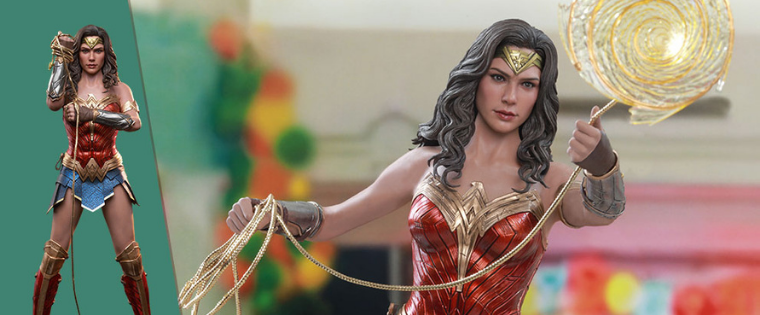Where Does Streaming Fit into Licensing’s Future?

In these topsy-turvy times, the only thing certain is… uncertainty.
As we’ve noted, that’s especially been true in the film licensing business. At this point the only planned tentpole left on the 2020 schedule is the oft-delayed Wonder Woman 1984, and even that Christmas Day release might not be a sure thing.
Prior to this year, it was rare to take a major film scheduled for theatrical release instead to streaming. It was the modern equivalent of the dismissive description “direct to video” in the VCR days.
New Strategies
But studios’ hands have been forced by the realities of the pandemic, and they’re increasingly testing out new strategies — Disney released Mulan on Premium VOD and will stream Soul on Disney Plus on Christmas Day.
But where does that leave licensees, who bought into those properties on the basis of being supported by big marketing campaigns? One consultant says that so far, studios have been willing to have “good faith discussions” about remedies, though “nobody is rolling over.” Going forward, it’s safe to assume that this will be a potential point of negotiation between entertainment brand owners and licensees
Playing the ‘classics’
In the short term, licensees who have been with a franchise through multiple iterations are falling back on “classic” merchandise tied to the property.
“We know that retailers and consumers are going to be drawn to the more established brands and characters with strong stories, whether that’s in theaters on streaming services,” says an executive at a major European licensee. “We are going to be diving deep with our existing licenses and there will always be something new in the market, but the actual revenue that newness drives may not be enough to keep the lights on.”
For the longer term, studios increasingly are throwing marketing muscle behind streaming or VOD releases, while still leaving an opening for theatrical. For example, Disney shows no signs of abandoning theaters, but the company is “accelerating our pivot to a direct-to-consumer-first business model” as “key to the future growth of our company,” CEO Bob Chapek said last week.
For example, Disney launched “Mando Mondays” in late October to mark the release of the second season of The Mandalorian with promotions that run every Monday through Dec. 21 featuring products, games and books tied to the series. There have been merchandising success stories around such properties as Netflix-based “Stranger Things”, and an upsurge in interest for the Netflix-driven rise of “Schitt’s Creek” in the past year (in time for its sixth and final season). That’s five years after it launched on the Pop TV cable channel and three after Netflix got the streaming rights..
“Many of these are multi-generational properties [Mandalorian is, of course, a Star Wars offshoot] that have a lot of wind behind them already, so if it isn’t in the theater and ends up being for streaming or VOD, I think it will still be strong, as it’s a franchise property that has appeal regardless” of distribution channel, says Uncanny Brands CEO Matthew Hoffman, whose company has products tied to Minions 2: The Rise of Gru (July 2) and Spiderman-3 (Dec. 17) for 2021.
And in a year likely to have some continued uncertainty around theatrical releases, streaming and VOD will help lock in a new generation of fans, says Jason Mayes, Director of Marketing and IP at Bioworld.
“There is no lifespan on fandom related to pop-culture now,” says Mayes. “The best performing products on streaming platforms are classics. The question is no longer, what is going to be big when it releases. The question is, will this be a new classic?”




